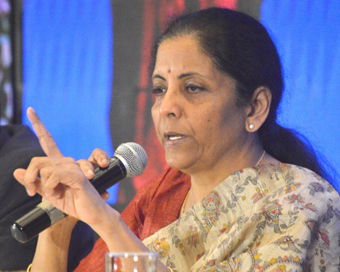 PM Modi visit USA
PM Modi visit USA Only the mirror in my washroom and phone gallery see the crazy me : Sara Khan
Only the mirror in my washroom and phone gallery see the crazy me : Sara Khan Karnataka rain fury: Photos of flooded streets, uprooted trees
Karnataka rain fury: Photos of flooded streets, uprooted trees Cannes 2022: Deepika Padukone stuns at the French Riviera in Sabyasachi outfit
Cannes 2022: Deepika Padukone stuns at the French Riviera in Sabyasachi outfit Ranbir Kapoor And Alia Bhatt's Wedding Pics - Sealed With A Kiss
Ranbir Kapoor And Alia Bhatt's Wedding Pics - Sealed With A Kiss Oscars 2022: Every Academy Award Winner
Oscars 2022: Every Academy Award Winner Shane Warne (1969-2022): Australian cricket legend's life in pictures
Shane Warne (1969-2022): Australian cricket legend's life in pictures Photos: What Russia's invasion of Ukraine looks like on the ground
Photos: What Russia's invasion of Ukraine looks like on the ground Lata Mangeshkar (1929-2022): A pictorial tribute to the 'Nightingale of India'
Lata Mangeshkar (1929-2022): A pictorial tribute to the 'Nightingale of India' PM Modi unveils 216-feet tall Statue of Equality in Hyderabad (PHOTOS)
PM Modi unveils 216-feet tall Statue of Equality in Hyderabad (PHOTOS)The Badminton Association of India (BAI) has announced a 14-member-strong India squad for
- Men’s Sr Hockey Nationals to be played in division-based format from April 4
- Mensik denies Djokovic 100th title in Miami final
- KIPG: Son of a vegetable vendor, Bihar’s Jhandu Kumar eyes Worlds, 2028 Paralympics
- Hardik Singh credits hard work and team unity for receiving HI Midfielder of the Year award
- Djokovic, Alcaraz land in same half of Miami draw
Government may face heat in Parliament on lower growth Last Updated : 02 Mar 2020 05:51:11 AM IST 
Finance Minister Nirmala Sitharaman (file photo) Finance Minister Nirmala Sitharaman will be facing questions on the seven-year-low growth rate of 4.7 per cent in the Budget session's second leg starting from Monday while the session may see possible passage of the Banking Regulation Act Amendment Bill to bring multi-state cooperative banks under the RBI's regulation.
Pulled down by a contraction in manufacturing, India's GDP growth slipped to a nearly seven-year low of 4.7 per cent in the third quarter (October-December) 2019, data released by the National Statistical Office (NSO) on Friday showed. The Gross Domestic Product (GDP) growth, in the corresponding quarter of 2018-19, was recorded at 5.6 per cent.
The Finance Minister has termed the 4.7 per cent growth as showing "steadiness" in the economy.
In this session, the Parliament will likely clear the Bill to help prevent any further recurrence of Punjab and Maharashtra Cooperative Bank-like crisis, sources said.
The government has increased deposit insurance cover by five-fold to Rs 5 lakh to ensure the security of public money in banks.
The Cabinet had, last month, approved an amendment to the Banking Regulation Act to bring multi-state cooperative banks under the central bank's purview.
There are 1,540 cooperative banks with a depositor base of 8.60 crore having total savings of about Rs 5 lakh crore. The proposed law seeks to enforce banking regulation guidelines of the RBI in cooperative banks in order to increase professionalism and improve corporate governance, while administrative issues will still be guided by Registrar of Cooperatives.
The Finance Bill 2020 and The Direct Tax Vivad Se Vishwas Bill were introduced in the session that started on January 31 and ended on February 11. The second half of the Budget session is scheduled to conclude on April 3.IANS New Delhi For Latest Updates Please-
Join us on
Follow us on








172.31.16.186







